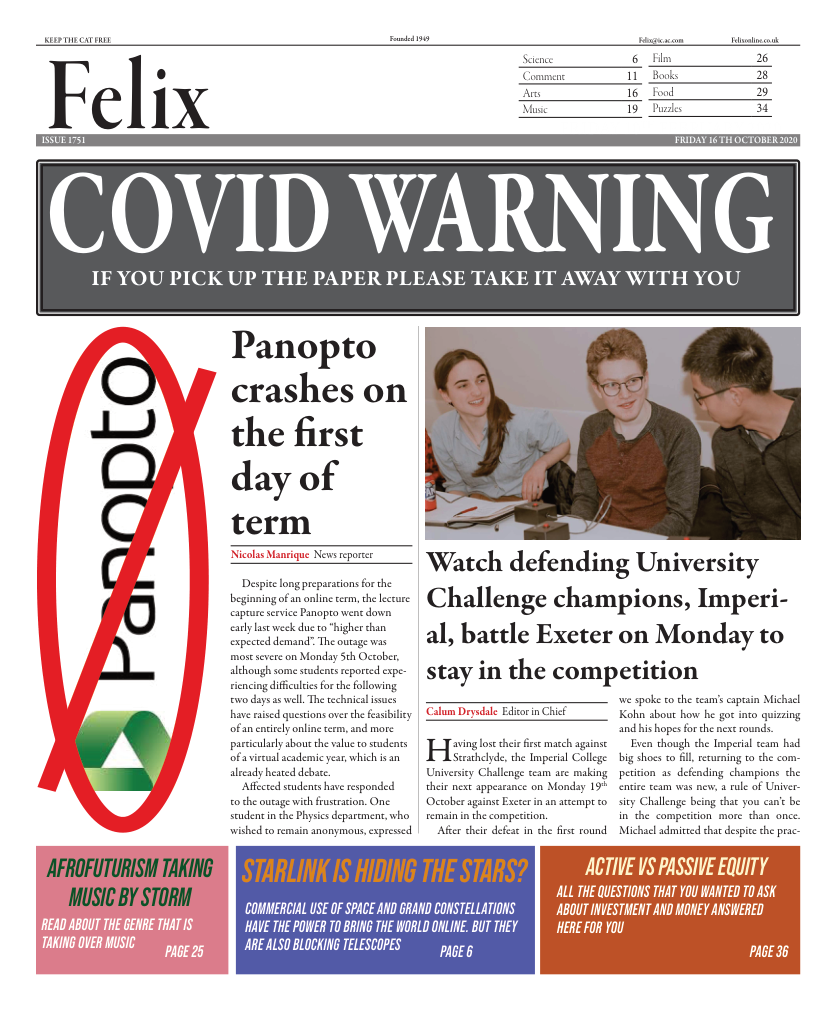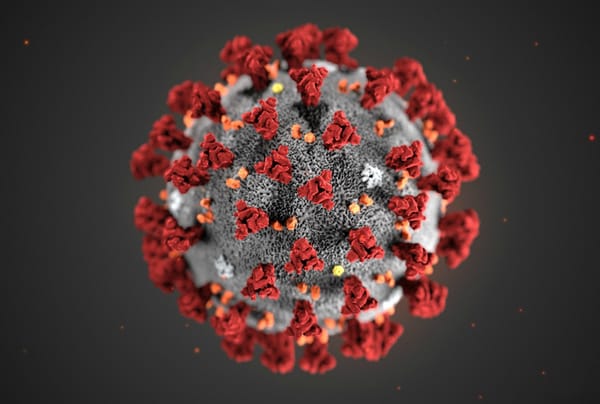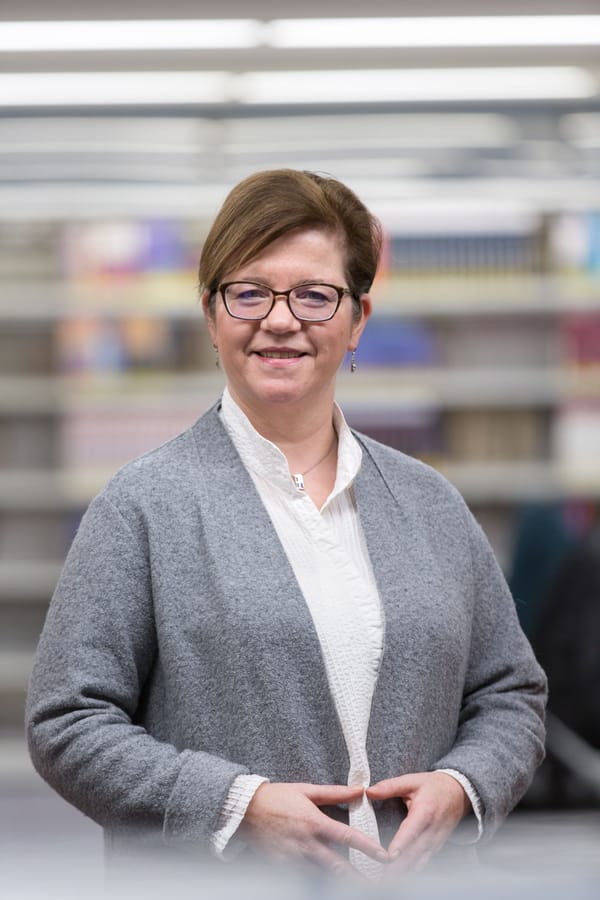Watch defending University Challenge champions, Imperial, battle Exeter on Monday
Having lost their first match against Strathclyde, the Imperial College University Challenge team are making their next appearance on Monday 19th October against Exeter in an attempt to remain in the competition.
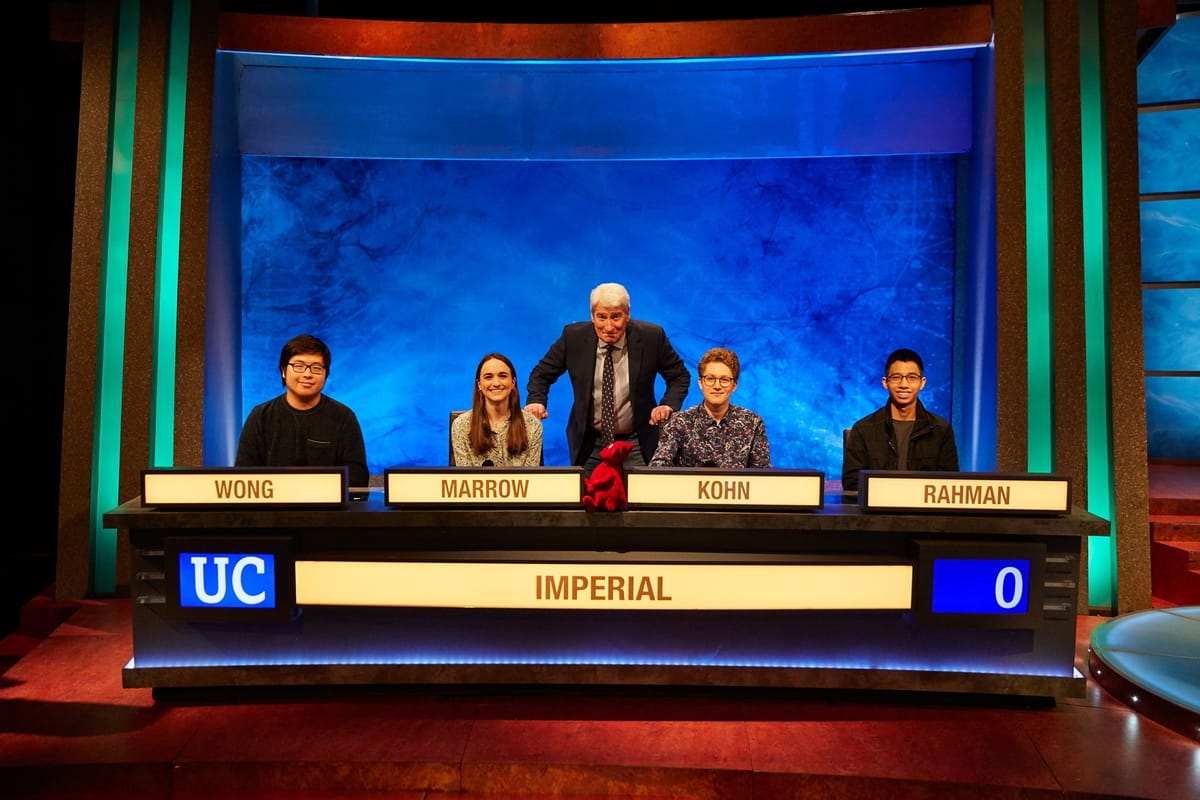
Having lost their first match against Strathclyde, the Imperial College University Challenge team are making their next appearance on Monday 19th October against Exeter in an attempt to remain in the competition.
After their defeat in the first round we spoke to the team’s captain Michael Kohn about how he got into quizzing and his hopes for the next rounds.
Even though the Imperial team had big shoes to fill, returning to the competition as defending champions the entire team was new, a rule of University Challenge being that you can’t be in the competition more than once. Michael admitted that despite the practice that Imperial had been doing and the fact that Strathclyde are not known as a university that typically performs well the competition, he and his team mates were shaken by being on camera. For the whole team it was the first time they had been on television and Michael admitted that it rattled them. Questions covered topics including river deltas, art, Atlanta based hip-hop and the bones of the human body.
The two teams started out equally, each team getting a starter question but Strathclyde soon pulled away, claiming starter question after question until they had an imposing lead of over 100 points. A late rally by the Imperial team was not enough to close the gap however and the programme ended with the Imperial team on 155 and the Strathclyde team on 190.
The two teams had a major difference in ages. The average age of the Imperial team was 19 and all the team were undergraduates while the Strathclyde team included three postgrads and had an average age of 29.
We then moved on to talking about how Michael had himself got into quizzing. Unlike what I expected, he was not a long term University Challenge fanatic but had instead joined the quiz society at the beginning of last year and having been selected for the team in November he and his fellow teams mates had 4 months to prepare for the filming of the first round which happened in February (and was broadcast in August). Although filming was planned to continue through March and April the COVID-19 pandemic put a stop to that meaning that numerous episodes of the competition remain unfilmed.

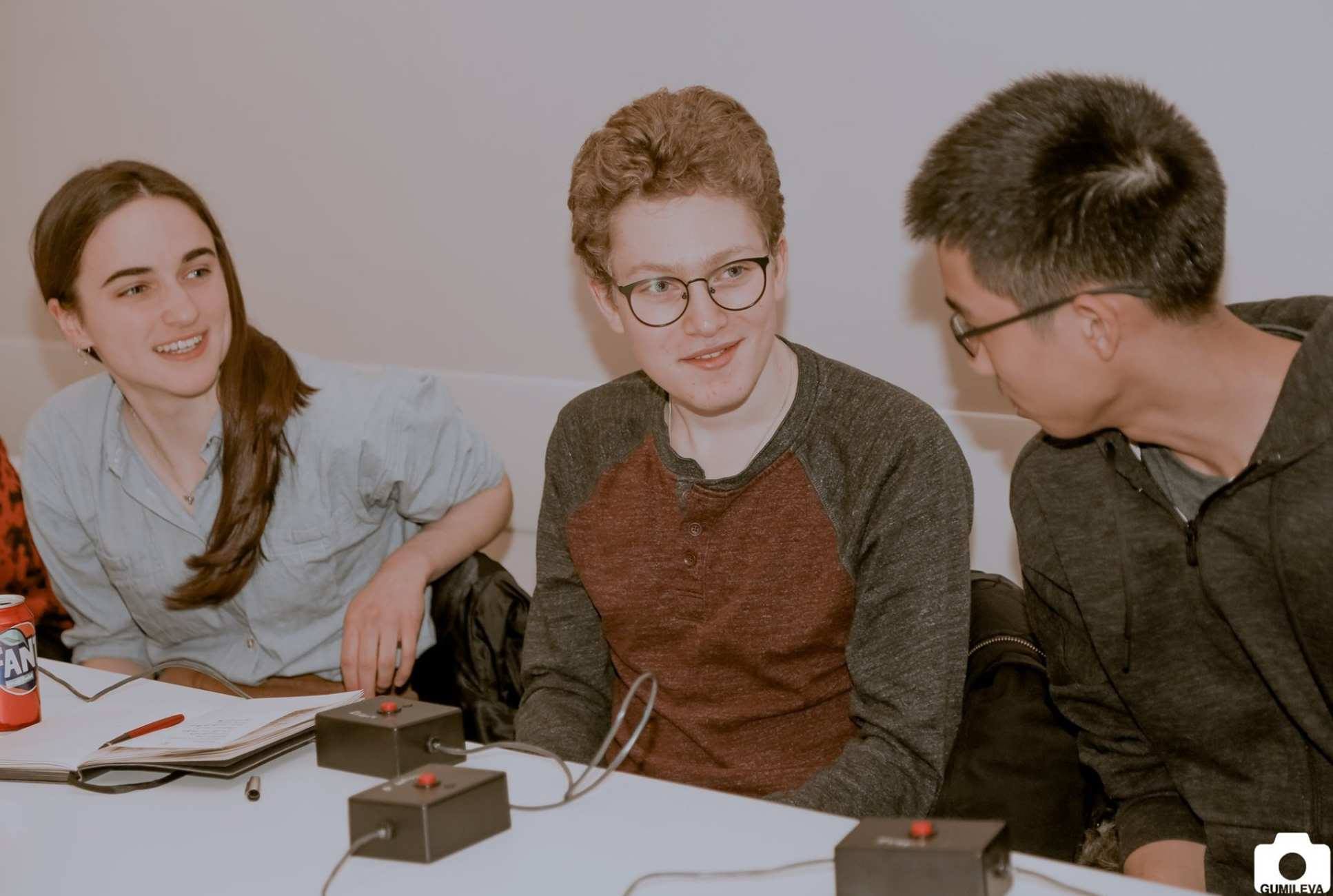
The other members of the Imperial team are Justin Wong (2nd Year Maths), Katie Marrow (3rd year Physics) and Imran Rahman (4th year Physics). Michael explained how each member of the team had an area of expertise that they cultivated in order to complement the team as a whole. The specialisations are as follows : Justin Wong - history & geography,
Katie Marrow - word-based questions, the natural world and what Michael referred to as “weird shit” (Katie being the only member of the team to get a question right in a round about the names of different types of windows), Michael Kohn - literature and fine arts and Imran Rahman - social sciences, films, classical music.
Micheal explained that the team trained hard for the competition by trawling through Wikipedia, practising by watching old rounds and seeing if they could buzz in before the people on the screen and curating flashcard lists on Anki, an app often used by medics to remember drug names and anatomy. When I asked if he would be willing to share these lists with students, he politely refused saying that “curating and creating these lists is the most important part of the process”.
Do you have what it takes?
- In which US state are the Vermillion cliffs?
- According to John Ruskin, no person who is not a great sculptor or painter can be a member of this profession?
- For what do the letters ‘su’ stand for in groups subject to Lie algebra?
- The plastic PET stands for polyethylene what?
Want to represent Imperial in University Challenge? Trials are now open! Contact the Quiz Society at Quiz@imperial.ac.uk
Answers: Arizona, Architect, Special unitary, Terephthalat


